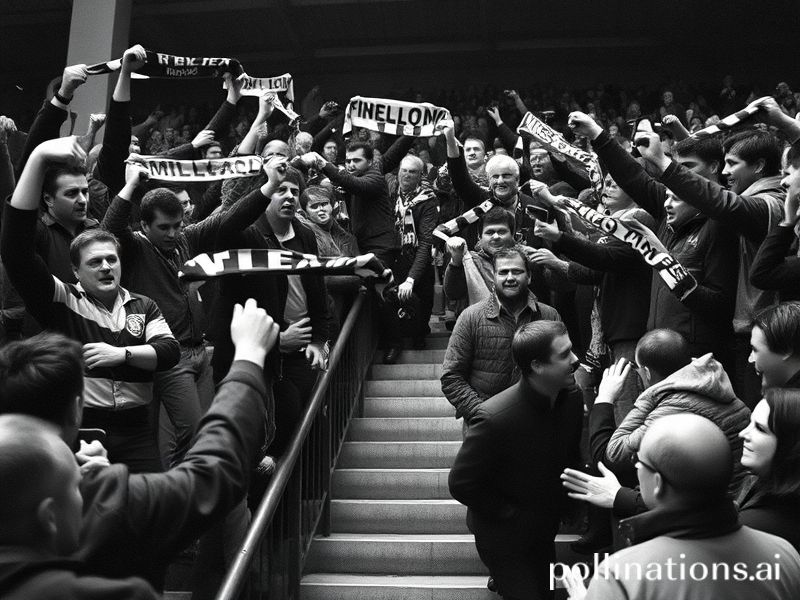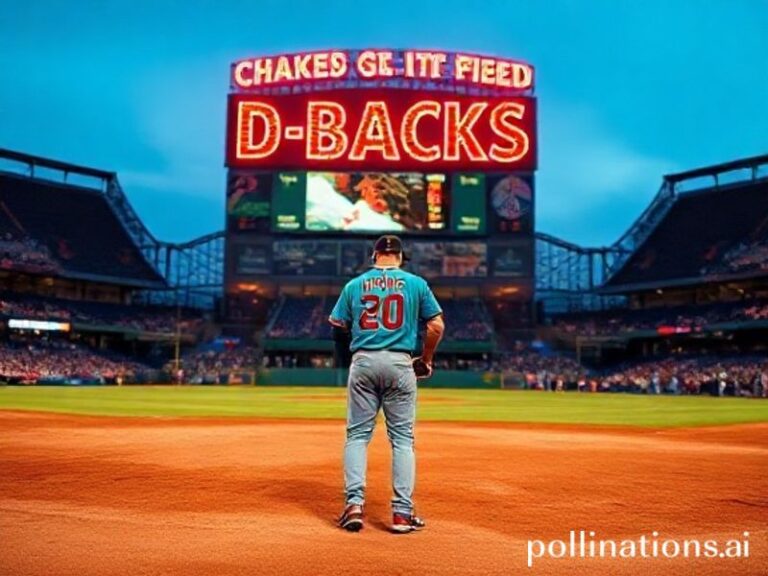Charlton vs Millwall: A Century of South-London Loathing the World Can’t Look Away From
Charlton Athletic vs Millwall: A Timeline of South-London Antipathy Viewed From a Safe Distance
By our world-weary correspondent, currently hiding in a neutral-zone Wetherspoon’s
1925 – The Football League, still high on post-Victorian optimism, slots two factories-with-whistles—Charlton (the “Valiants”) and Millwall (the “Lions”)—into the same postcode. No one yet suspects that 100 years later the same fixture will require a police operation normally reserved for coup attempts in medium-sized republics.
1938 – First recorded pitch invasion. Historians note the global depression, 30 % unemployment, and the fact that both sets of fans still agreed on one thing: the ref was definitely on the take. Even Mussolini, busy invading Albania, sends a telegram reading “Tone it down, lads.”
1950s – The Suez Crisis comes and goes; Britain loses an empire but gains floodlights at The Valley. Charlton and Millwall trade mid-table obscurity and the occasional broken jaw. CIA analysts file the rivalry under “manageable local dysfunction,” somewhere between Greek elections and the French postal service.
1970 – The Golden Age of Hooliganism™. Skinheads discover cheap rail fares and Stanley knives. Simultaneously, the Beatles break up, Pol Pot takes notes, and somewhere a UN intern adds “South-East London derbies” to a growing list of intractable conflicts between peoples who look identical on paper.
1985 – Millwall relocate to a converted greyhound track in Deptford; Charlton fans call it “kennel chic.” Both clubs miss the inaugural Premier League gravy train, proving that self-sabotage is the most British of exports—an example later studied by post-Soviet oligarchs and American healthcare providers.
1995 – Danish midfielder Allan Nielsen scores for Millwall, then needs a police escort off the pitch. Copenhagen newspapers run the headline “Nice Boy Visits Dystopia.” Tourism to SE7 & SE16 drops 12 %.
2004 – Globalisation finally arrives: an American consortium buys Charlton; a Bermudan hedge fund eyes Millwall. Somewhere in Davos a panel concludes that “football is the new opium of the masses, only more profitable and slightly more addictive.” The same PowerPoint lists the rivalry’s EBITDA as “volatile but brand-safe.”
2012 – London hosts the Olympics, preaching harmony. Charlton vs Millwall is scheduled the same week. IOC delegates, sipping £14 mocktails in Stratford, ask if the “local colour” could perhaps be postponed. The Met allocates 1 600 officers, more than were deployed for the entire Bosnian peacekeeping mission in ’93.
2019 – A 0-0 draw is celebrated like a UN ceasefire because only one red card is shown and no one sets fire to a bus. The UN Secretary-General cites the result in a speech on de-escalation; no one is sure if he is joking.
2020 – Pandemic empties stadiums. For the first time in 95 years no one can hear the opposition’s goalkeeper insulted about his dietary habits. Both sets of fans agree the derby “felt weird,” proving that hatred, like vinyl, is best experienced live and in person.
2022 – A Russian oligarch attempts to buy Charlton; sanctions intervene. A crypto consortium swoops on Millwall, promising NFT season tickets. Somewhere in Kyiv a fan group tweets: “Even our war has fewer plot twists.” The tweet wins “Best Gallows Humour” at the Shorty Awards.
2024 – The next chapter looms. Climate scientists predict permanent water shortages by 2040; South London predicts permanent shortage of away-end toilet paper by 3 p.m. Saturday. Both crises deemed equally unsolvable.
Global Significance (if we must)
The Charlton-Millwall timeline is a pocket-sized morality play: give humans a ball, 90 minutes, and a post-code grudge, and they’ll recreate the geopolitics of the Balkans with half the budget and twice the swearing. Investors, diplomats, and tech bros looking for the next “engagement tool” could save billions by simply studying how two underfunded clubs keep worldwide attention without a single TikTok influencer.
Meanwhile, actual diplomats fail to resolve Yemen, Sudan, or the US debt ceiling. Perhaps the answer is to relocate UN headquarters to Bermondsey and let the Security Council fight it out on a wet Tuesday night in February. Away goals count double; veto power decided by last-man-standing in the concourse pie queue.
Conclusion
From the perspective of anyone outside the M25 orbital motorway, Charlton vs Millwall is a comforting reminder that while the world perfects drone warfare and algorithmic bias, some humans still prefer the medieval simplicity of shouting “Your mum” across a muddy field. Long may it continue—preferably viewed through reinforced glass, from another continent.







